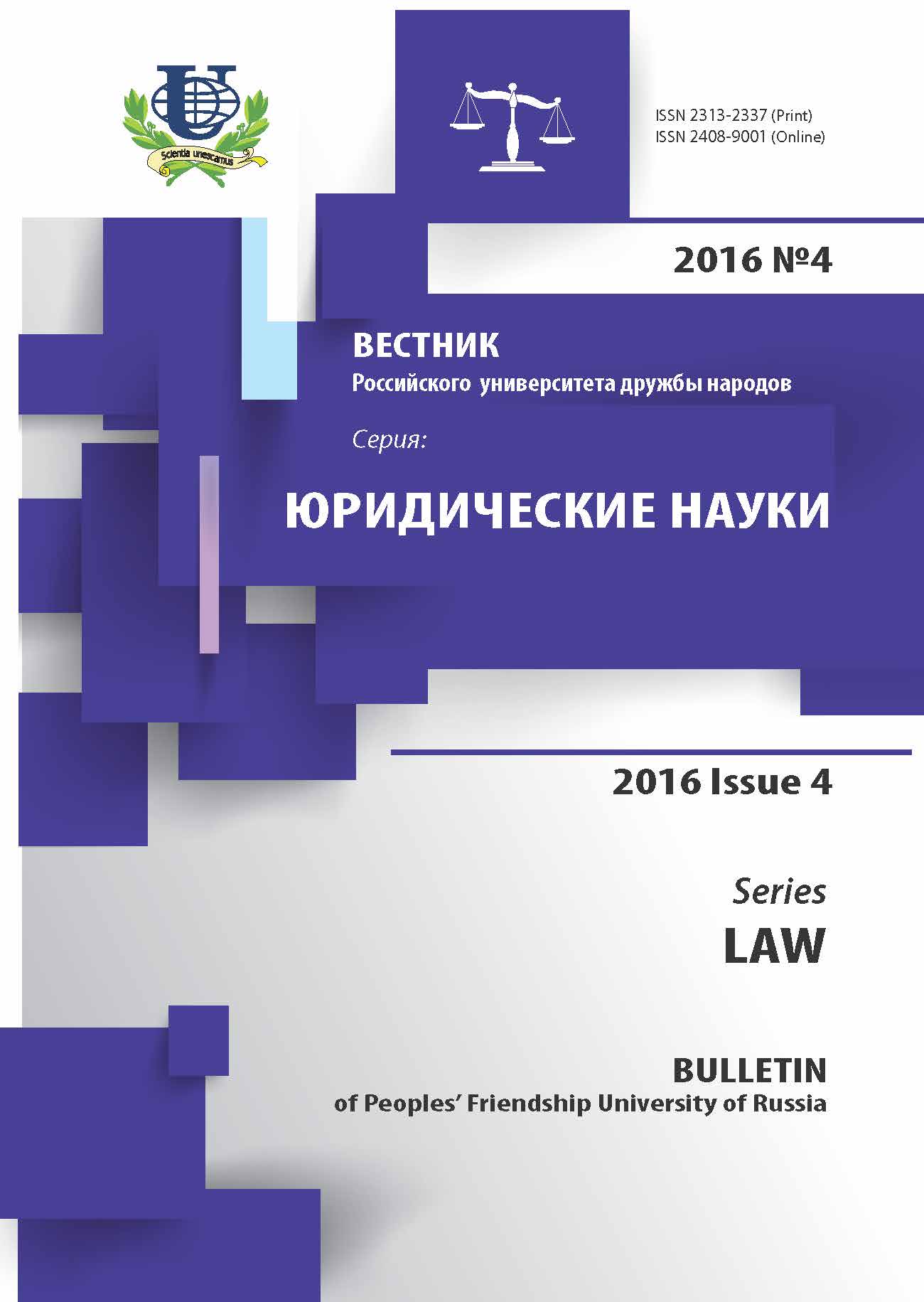Alf Ross’s Realistic Concept of the Sources of Law
- Authors: Vasilyeva N.S1
-
Affiliations:
- Saint-Petersburg State University
- Issue: No 4 (2016)
- Pages: 41-51
- Section: Articles
- URL: https://journals.rudn.ru/law/article/view/15127
Cite item
Full Text
Abstract
This article analyzes of A. Ross's theoretical conceptualization of the sources of law and their classification which is considered as an important part of Ross's concept of the validity of law. A. Ross states that the theory of law should be based on the principles of empiricism and thus the validity of the law can only be discovered through an empirical study based on a synthesis of psychological and behavioristic views. Such study means analyzing the practice of the courts (and other authorities administering the law) and finding both consistency and predictability in the behavior of the judges and a certain normative ideology, which governs and motivates spiritual life of the judges and in fact animates the courts. A. Ross argues that it is the only possible way to comprehend and predict the actions of the courts, which is crucial for discovering valid law. A common normative ideology, the ideology of the sources of law, is present and active in the minds of the judges and determines their way to discover a directive decisive for a certain legal dispute and formulate a rule on which decision will be based. Hence, A. Ross’s conceptualization presupposes that “sources of law” should be understood as the aggregate of factors influencing the formulation of the rule. This influence can vary depending on the degree of objectification of various types of source: some sources provide a ready formulated rule, while the others provide only material and inspiration. It also focuses on the concept of the tradition of culture which is considered as both a direct source of law and a significant factor influencing the legal system, the legal consciousness, the interpretation of law and the administration of justice.
About the authors
Nataliya S Vasilyeva
Saint-Petersburg State University
Email: theory@jurfak.spb.ru
Faculty of Law 7/9, Universitetskaya nab., St.-Petersburg, Russia, 199034
References
















